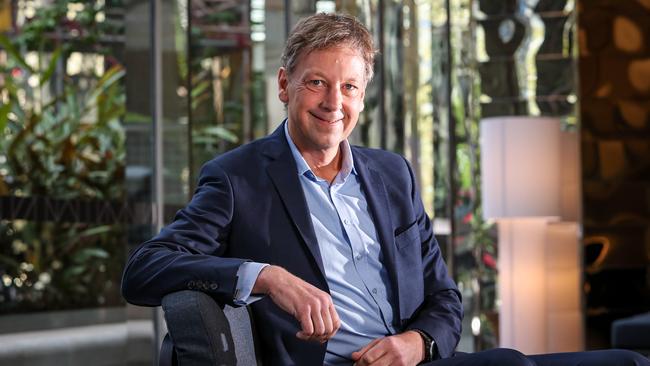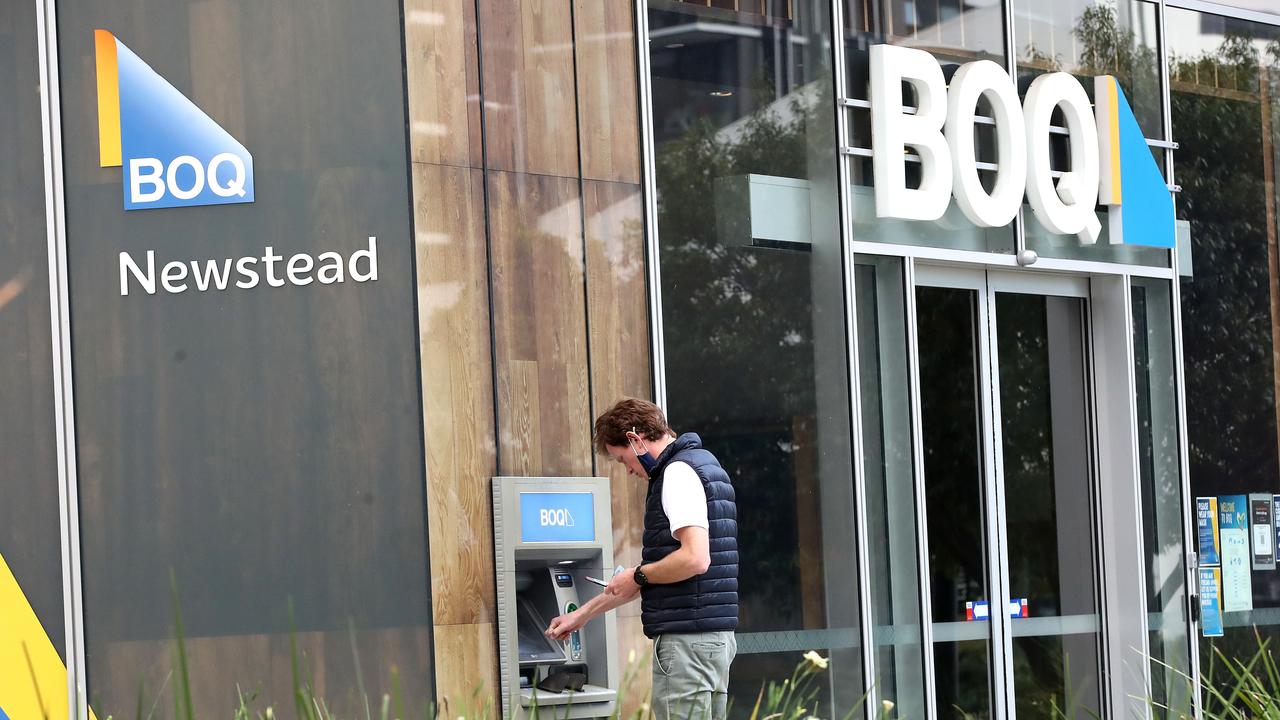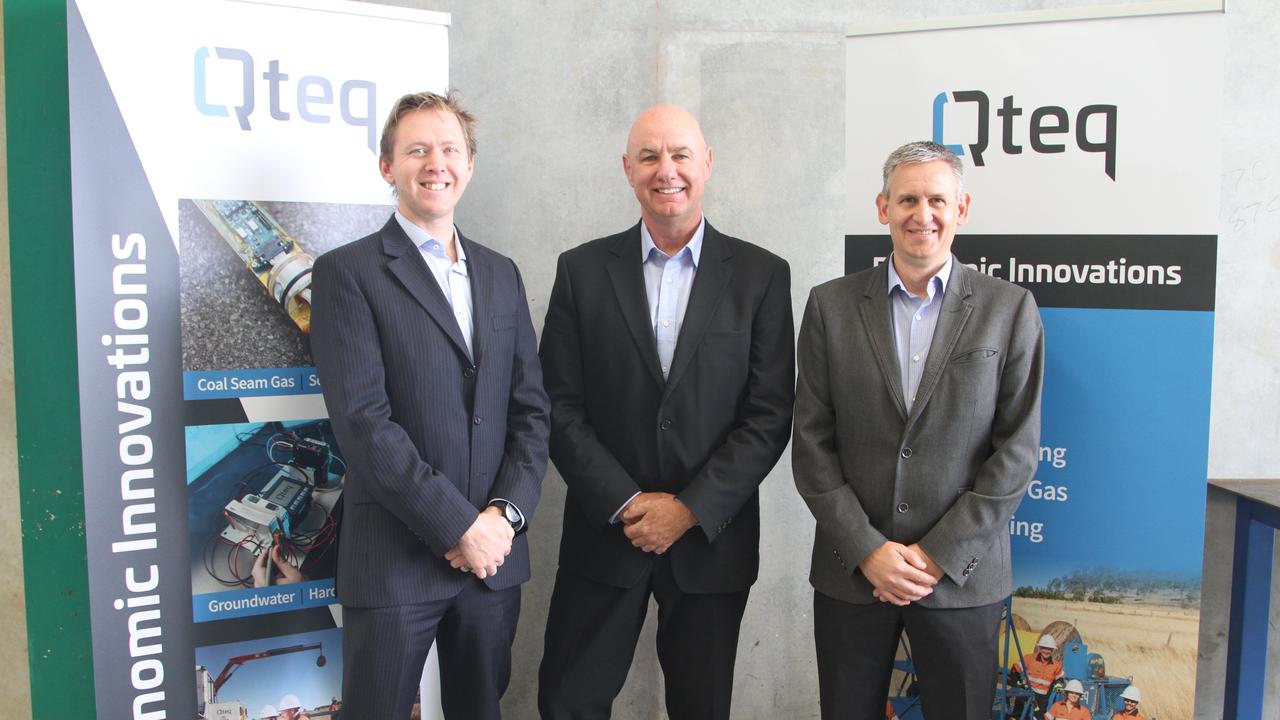Rio Tinto will buy Rincon lithium project in Argentina for $US825m
Rio Tinto has doubled down on its pivot to lithium, signalling it intends to become a significant player in the global battery market.

Business
Don't miss out on the headlines from Business. Followed categories will be added to My News.
Rio Tinto has doubled down on its pivot to lithium, signalling it intends to become a significant player in the global battery market through the $US825m ($1.16bn) acquisition of an Argentinian lithium brine project.
Rio will buy the undeveloped Rincon lithium project from private equity owner Sentient Equity Partners, adding the project to its Jadar lithium play in Serbia as the mining giant looks to get serious about entering the sector at scale.
The project sits in South America’s so-called “lithium triangle”, home to a host of producing and emerging lithium brine projects.
The move represents a total outlay by Rio of more than $US1.5bn ($2.1bn) for a 50,000-tonne-a-year lithium carbonate production hub, according to the results of an early-stage feasibility study published by Rincon’s private equity owners this year.
Combined with Rio’s $US2.4bn plans to develop the Jadar lithium mine in Serbia, the Rincon acquisition would result in the mining giant producing about 110,000 tonnes a year of lithium carbonate equivalent by about 2026 – or about 4 per cent of the projected global lithium market by 2030, based on analyst projections – assuming Rio keeps to the original development timeline for Rincon and Jadar.
Rincon’s output could be expanded to up to 100,000 tonnes of lithium carbonate a year, based on the extensive access to water reserves already negotiated with local authorities.
Both mines would come into the market as demand for the battery-making ingredient accelerates, with JPMorgan analysts tipping a 24 per cent compound annual growth rate for lithium demand until 2030.
Macquarie analysts said in a client note this week that, based on currently planned construction of lithium production centres, they expected the gap between supply and demand to “widen significantly” in 2027, just after Rio plans to enter the market.
But Rio’s entry will come with a significant price tag.
The scoping study results – published to reporting standards required by Canadian regulators, but not directly compliant with Australia’s JORC code – put a capital cost of about $US770m on the project, with projected operating costs of about $US3000 a tonne of lithium carbonate.
JPMorgan resources analyst Lydon Fagan said Rincon looked “relatively expensive” in a client note on Wednesday.
“Strategically, we are positive on the deal given it increases battery metals exposure and gives Rio an entry into a 40-year-life brine asset, sitting low on the cost curve, with expansion potential,” he said. “However, the acquisition price combined with the development capex makes it a relatively expensive project, and therefore it relies in relatively high lithium price assumptions to generate an attractive return (similar to Jadar).”
Mr Fagan said that, based on numbers previously published by Rincon’s owners, he believed the asset could deliver $US650m in earnings before interest, tax, depreciation and amortisation at an average lithium carbonate price of $US18,600 a tonne, or $US380m EBITDA at long-term average prices of $US12,250.
Rio said it intended to update Rincon’s feasibility studies and mineral resource estimates to comply with Australian reporting standards before releasing further details of its plans for the project.
“Work will be undertaken to determine the development strategy and timing, secure updates to existing environmental impact assessment permits to allow development and production, and undertake ongoing engagement with communities, the province of Salta and the government of Argentina,” the company said.
An updated pre-feasibility study is due on Rincon by the end of the year, which Rio will incorporate into its own work on the asset.
Rio chief executive Jakob Stausholm said the company would continue to pump growth capital into commodities that supported decarbonisation of global energy networks
“It is expected to be a long-life, low-cost asset that will continue to build the strength of our battery materials portfolio, with our combined lithium assets spanning the US, Europe and South America,” he said.
The Rincon development plan included use of a novel extraction technology, developed in partnership with the Australian Nuclear Science and Technology Organisation, that would extract lithium directly from the brine, rather than traditional methods that use the sun to dry out the brine into a salt concentrate.
In addition to Rincon, the Rio deal includes the acquisition of the holding company that owns the intellectual property to the processing technology.
A pilot plant has already been commissioned to test the technique, with results expected by the end of the year.
Rio is also looking to develop the $US2.4bn Jadar lithium mine in Serbia, but the project has been plagued by growing community opposition.
The Rincon deal is Rio’s first significant project acquisition since its ill-fated $US3.7bn buyout of Riversdale Mining and its Mozambique metallurgical coal assets in 2011 – a deal that cost chief executive Tom Albanese his job when the wheels fell off shortly afterwards.
It is also believed to be the first deal closed by Rio Tinto Ventures, a specialist arm of the company’s business development team set up in 2017 to help the company look beyond its traditional tier-one development targets, with a particular focus on “new and emerging” commodities. The Venture team has been linked to dozens of projects over the past few years.
Rio fell 2 per cent to $99.35.





